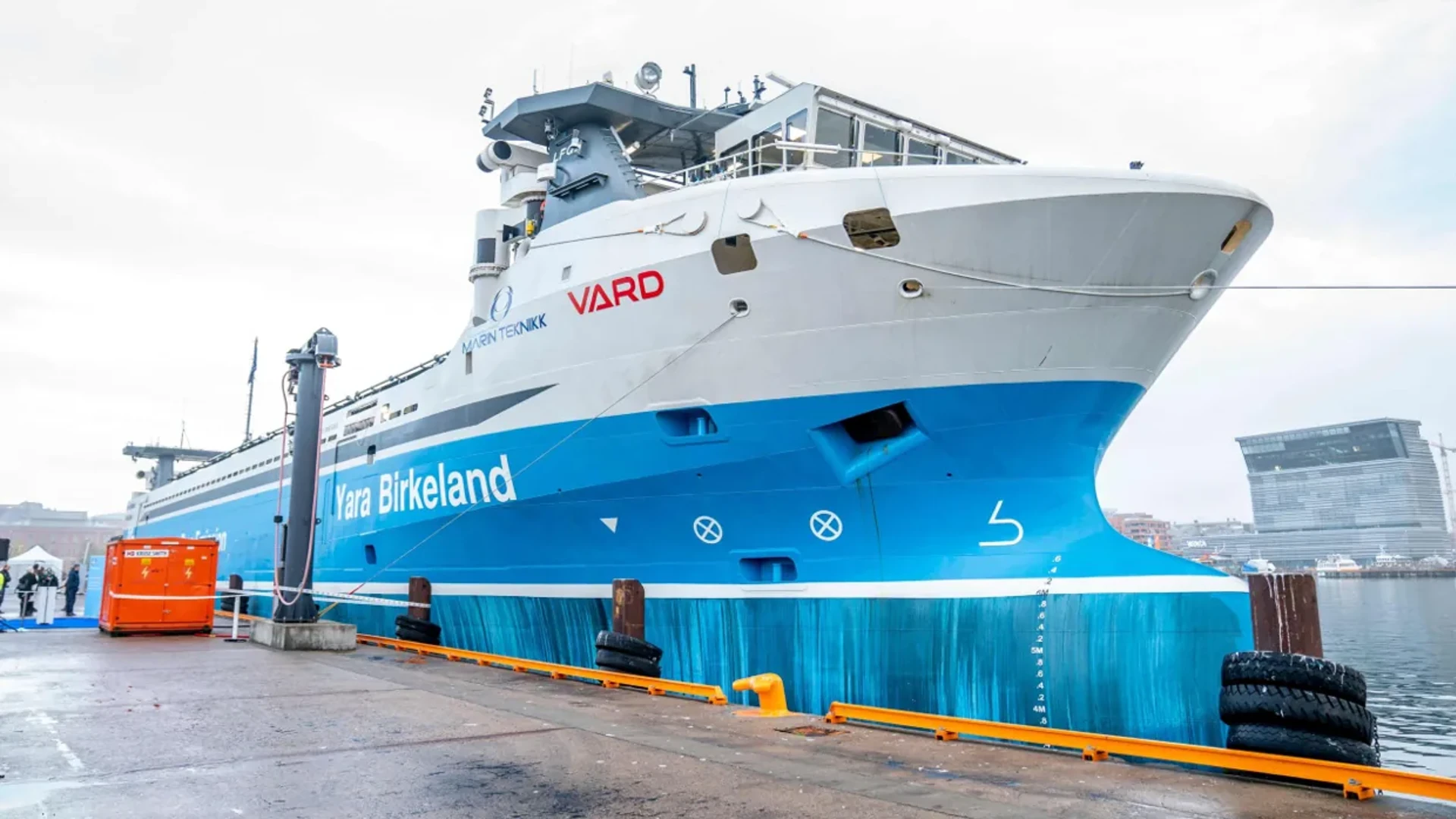The world’s earliest electric autonomous cargo ship has been launched in Norway, paving the way for a future of carbon-free maritime transport.
Yara Birkeland, as it is called, is a tiny vessel compared to modern mega-container ships. It can transport up to 120 containers of goods with zero crew members and runs solely on electricity.
This vessel is fully autonomous and can be remotely controlled by just two operators. During the beginning two-year test period, a redundancy crew will be on board the vessel, monitoring its progress.
A 7 MWh battery, 2 Azipull pod thrusters, and two Tunnel thrusters enable the vessel to reach a maximum of 13 knots. There are nearly 80 meters of length, 15 meters of width, and 12 meters of depth.
Commissioned by Norwegian fertilizer giant Yara, with assistance from the Norwegian Government, Kongsberg, a maritime technology company, built the vessel.
“Yara Birkeland lets us move transport from the road to the sea, reducing noise and dust, maintaining local road safety, and reducing NOx and CO2 emissions,” Svein Tore Holsether, CEO of the fertilizer giant Yara, announced in a press release.
On November 18, the vessel sailed to Oslo, the capital of Norway, on its maiden voyage. It plans to use the vessel regularly soon, carrying fertilizers from its plant in southern Norway to the port of Brevik – a distance of 16 kilometers. Despite its relatively small route, the vessel is expected to eliminate nearly 40,000 trips made by petroleum-powered trucks every year.
“By using this new autonomous battery-driven container vessel, we can move transport away from roads to sea, reducing noise and dust emissions, improving local road safety, and reducing NOx and CO2 emissions,” Holsether added.
Maritime shipping is one of the most polluting industries in the world. In 2018 alone, the world’s shipping industry was responsible for emitting nearly 962 million tons of greenhouse gases, according to the International Maritime Organization data.
In recent years, efforts are being made to de-carbonise the maritime shipping industry and the aviation industry to limit global warming to under 1.5 degrees Celsius from pre-industrial levels.
